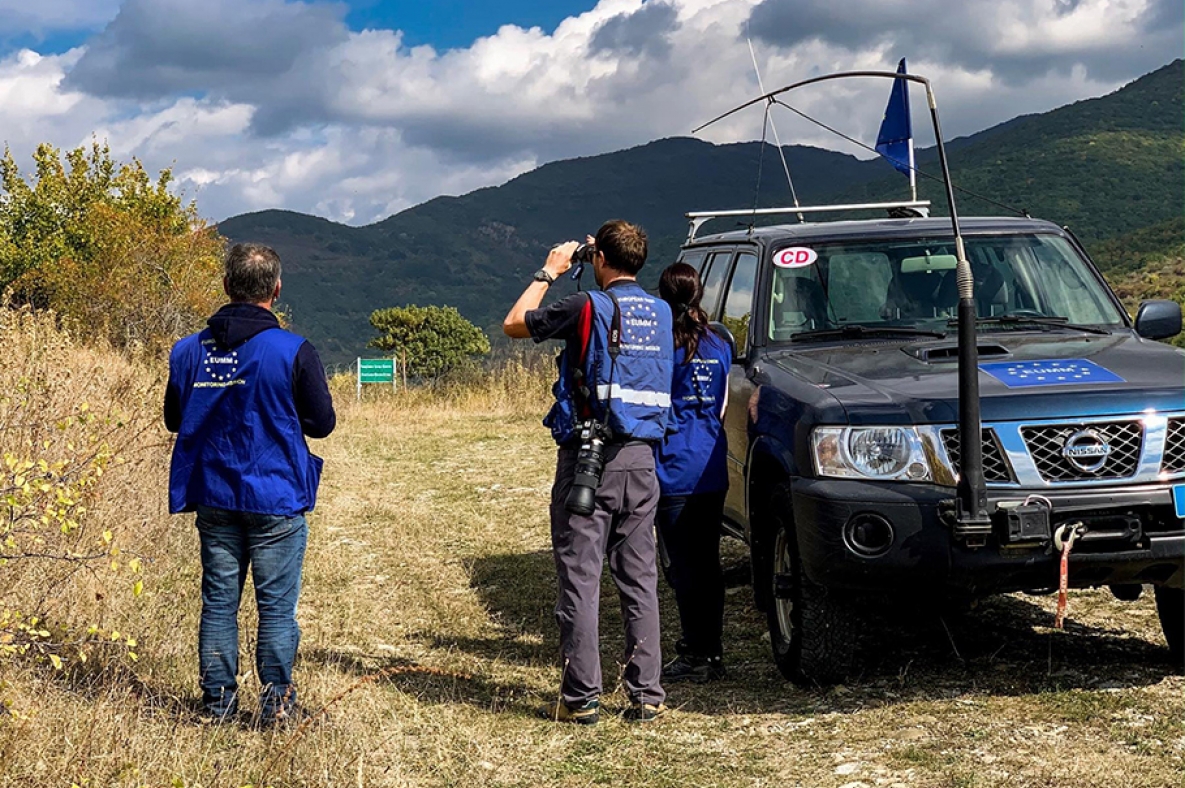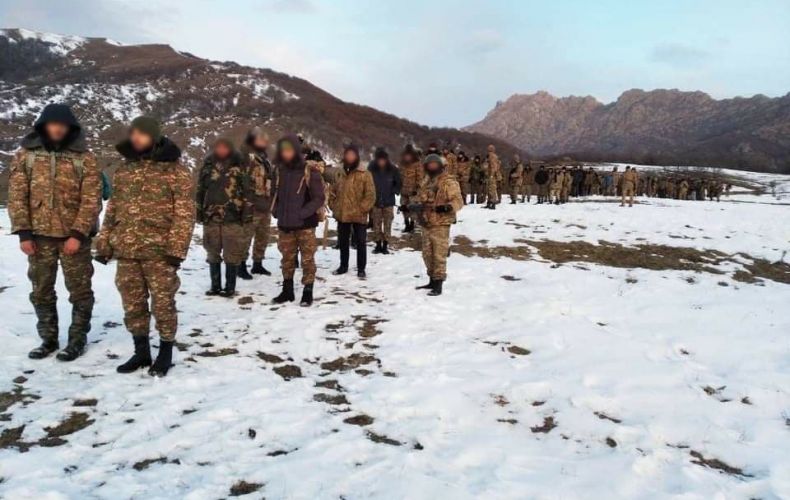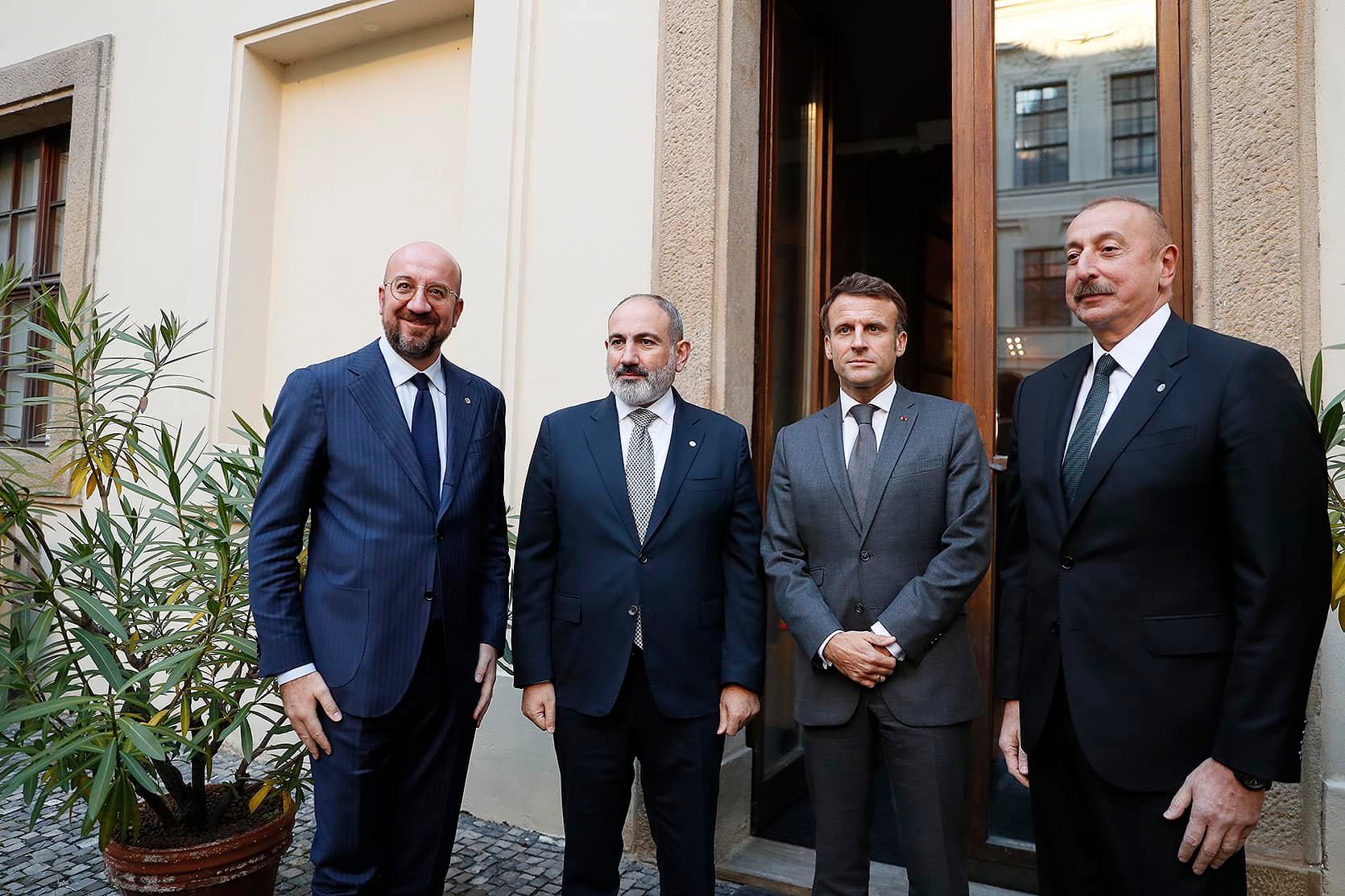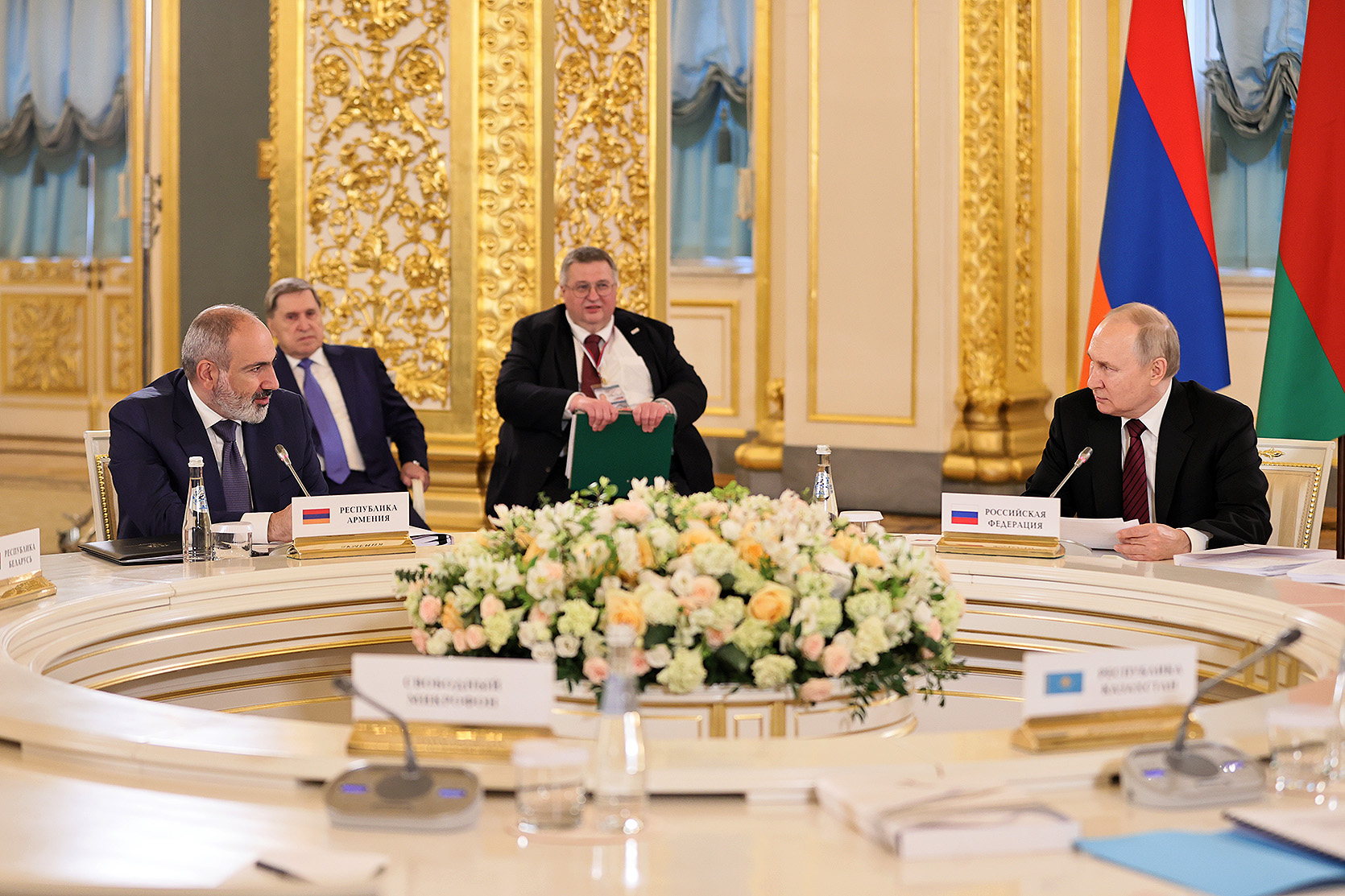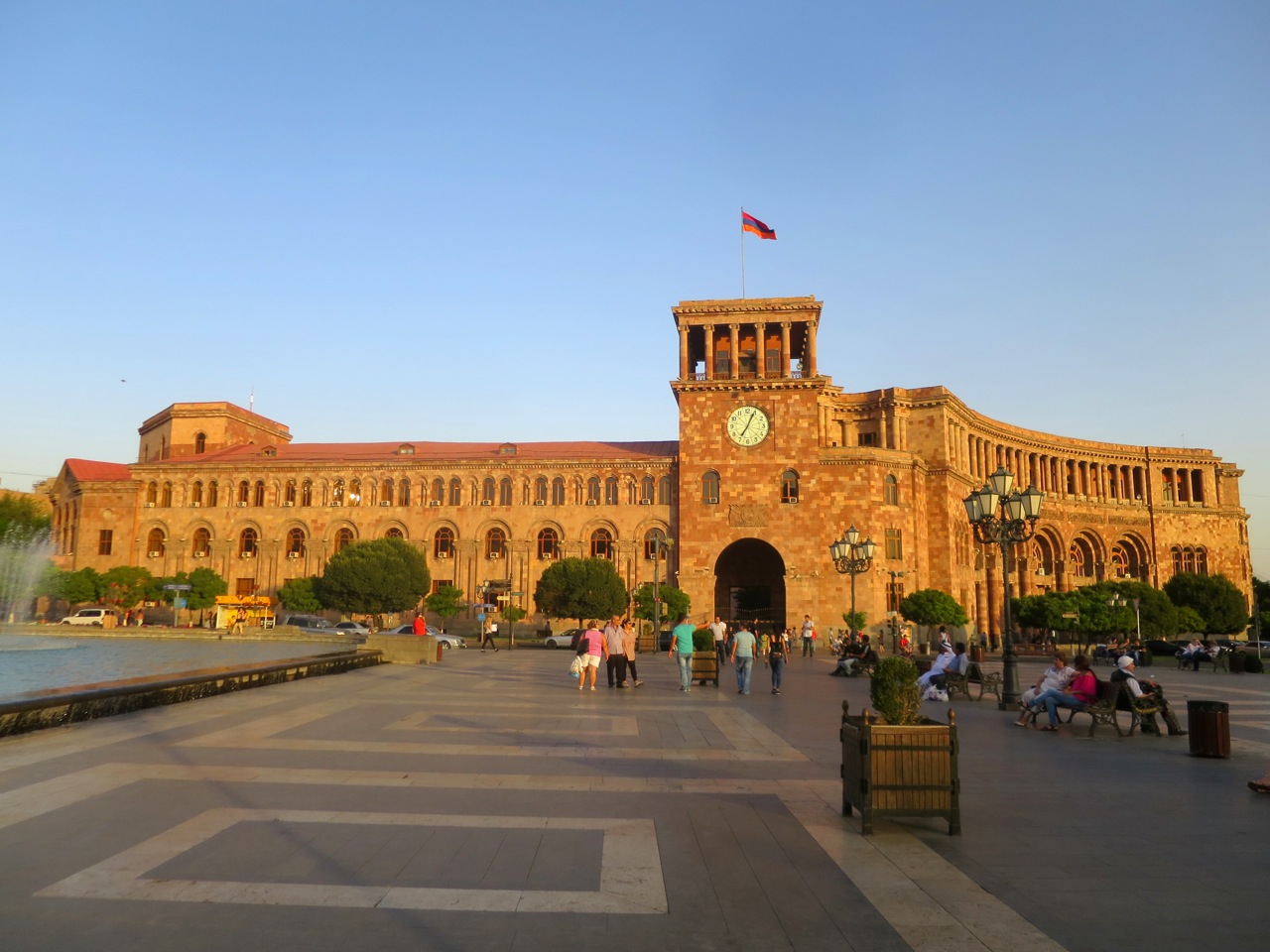"Regional players are not interested in a large-scale escalation." Opinion from Yerevan
Shelling of Yeraskh by Azerbaijani Armed Forces
The armed forces of Azerbaijan again aimed fire in the direction of a metallurgical plant under construction in the Armenian village of Yeraskh. In the afternoon, the Armenian Ministry of Defense reported that two Indian citizens were injured as a result of the shelling. The Azerbaijani Armed Forces, in the same direction, fired not only on the building of the plant under construction, but also on Armenian military positions.
The Armenian Foreign Ministry, once again, issued a statement calling on the international community to take effective steps “to limit the expansionist ambitions of Azerbaijan.”
Political observer Hakob Badalyan believes that international partners “will not take steps to curb Azerbaijan’s aggressive behavior until it poses a direct threat to themselves, as happened in the case of Ukraine.”
“Baku first created “information support”, then opened fire”
This is the assessment of the Armenian Defense Ministry of the actions of the Azerbaijani armed forces in the direction of Yeraskh. The ministry recalled that accusations of violations of the ceasefire regime by Armenia were heard from Baku for a long time, then units of the Azerbaijani Armed Forces opened fire in the direction of Armenian positions. Civilian objects were also shelled, including the building of a metallurgical plant.
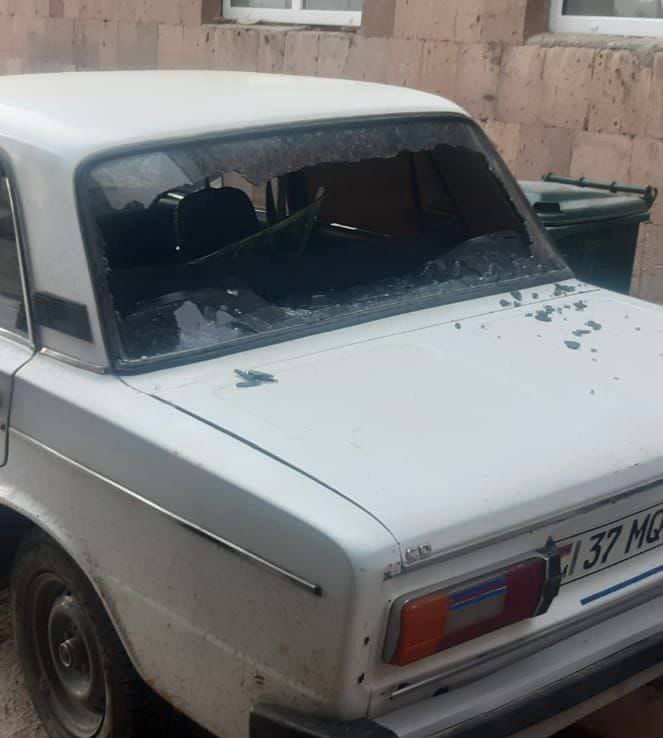
The Ministry of Defense published photographs of a civilian car that was fired upon.
After firing in the direction of Yeraskh on the morning of June 14, the Ministry of Defense stated:
“As a result of shelling from the Azerbaijani side, Indian citizens Muhammad Asif and Mirhasan Saajan, who took part in the construction of the plant, were injured.”
The Ministry of Health reported that the condition of the wounded was of moderate severity. Then the Ministry of Defense again stated that the shelling in the direction of Yeraskh was continuing.
“Baku is trying to impose desired solutions on Armenia”
This statement was made by the Armenian Foreign Ministry. It says that by shelling a plant in Yeraskh, which is being built with foreign investment, Azerbaijan “demonstrates open disregard for the internationally recognized borders of Armenia, human rights and international law.”
The Armenian Foreign Ministry believes that Baku perceives “a weak reaction and permissiveness on the part of the international community as a favorable or encouraging environment” for its actions.
“We call on the international community to take concrete steps to limit Azerbaijan’s expansionist ambitions and its unacceptable policy of achieving its unfounded, illogical and arbitrary demands through the use of force and the threat of force,” the statement said.
Regarding the “false accusations of Azerbaijan against the Armenian side regarding the construction of the said plant”, the agency states:
“The construction of the plant is fully in line with the country’s international obligations, and Azerbaijan’s false concern only aims to hinder Armenia’s economic development and foreign investment.”
Commentary by political observer Hakob Badalyan
There will be no harsh reaction from the international community
“So far, the international community has not positioned itself to allow us to expect in the foreseeable future, or even to assume readiness for steps that would curb Azerbaijan’s aggressive behavior. This country poses a threat to Armenia, to its border regions, to the people of Artsakh, but does not pose a threat to the international community.
The international community reacts to those actions that threaten and concern its own interests, as we see, for example, in the case of Ukraine.
What, in the case of Ukraine, causes a sharp reaction in relation to Russia, is completely hushed up in the case of Azerbaijan. In this situation, I do not think that there is a possibility of a concrete, targeted and tough response from the international community.”
Silence of partners indirectly encourages the policy of blackmail
“A few days ago, a representative of the US State Department welcomed Aliyev’s announcement of a so-called amnesty. And the President of Azerbaijan, in fact, simply blackmailed the leadership and people of Artsakh, talked about some kind of pardon, dictating conditions.
When, in the context of this logic, the statement is welcomed at the level of the official representative of the State Department, it is very difficult to regard it otherwise than encouraging the Azerbaijani policy of blackmail. It is alarming that after that no clarifications or explanations were received from the United States.
If they are absent and there is this greeting, then a situation is created that, at least indirectly, pushes Aliyev to continue the policy of blackmail that he uses and the manifestations of which we are once again observing [he means shelling in the direction of Yeraskh].”
Negotiations are not a factor that rules out escalation
“There is always the possibility of escalation. Negotiations in and of themselves are not a factor that rules out escalation. On the contrary, negotiations can become a pretext for escalation. It is very important that it is being discussed how much this discussion brings the parties closer to an agreement, how much it sharpens the approaches of the parties and, accordingly, directly or indirectly creates the basis for legitimizing the policy of blackmail.
From this point of view, escalation is always possible because there is a basic prerequisite and environment for escalation. This is an ongoing world war.
The start of the so-called Ukrainian counter-offensive has been officially announced on all sides. And this is an operation that has received powerful information support and is of great political importance, on which the West, and Russia, are building their big game. The operation has started, which means a new wave of escalation in Ukraine.
And this circumstance becomes a new prerequisite for Azerbaijan to use the disturbed balance of power.
As relations between geopolitical centers worsen, this situation becomes a suitable environment for Baku to fish in troubled waters.
It is no coincidence that at this stage we are witnessing the activation of Azerbaijan’s aggressive policy. They feel that the water is becoming cloudy again, it becomes possible to at least try to play the power factor.
Risks of large-scale escalation are minimal
“When I talk about the high probability of escalation, I mean the risks of cross-border, local escalation. Of course, I do not exclude the risk of larger-scale military operations, the geopolitical situation does not exclude either, but I consider the probability negligible.
Today there are no regional players interested in a large-scale escalation. Turkey itself is not interested in large-scale hostilities, because this would mean conflict with Iran and Russia. A number of such factors are taken into account.
Of course, I do not rule out that there are geopolitical actors who, based on the same factor of Iran, Russian-Iranian cooperation, may consider inciting such actions as a way to solve these problems. However, the general situation is such that such risks are minimal.”
Take threats more seriously
“Azerbaijan has been pursuing a principled political line for many years. It does not matter whether it is a big or small issue, whether it has international significance or not, Azerbaijan tries to use every opportunity to make any demand or complaint against Armenia or Artsakh. In the case of the metallurgical plant in Yeraskh, the situation is the same.
The main goal is to harm Armenia, but at the same time, to replenish the case with claims against Armenia. And this should be taken seriously. If we think that our partners will not take this seriously, that there are no grounds for this, tomorrow we may find ourselves in a difficult situation.
International politics and the attitude of the international community are shaped not by the nature of the problems, but by how these issues correspond to their interests, how they can be used for their own purposes or to carry out their strategy. If Azerbaijan can form a knot of mutual interests around these complaints, the international community may also begin to take all this seriously.”
Follow us – Twitter | Facebook | Instagram
Shelling of Yeraskh by Azerbaijani Armed Forces










